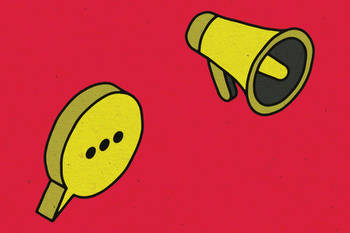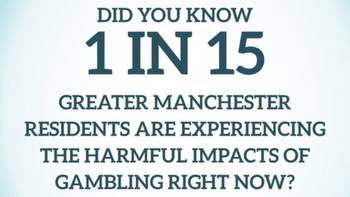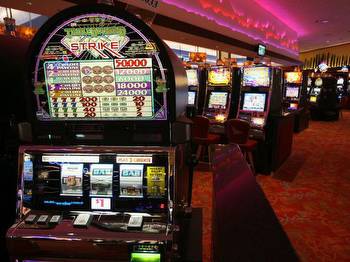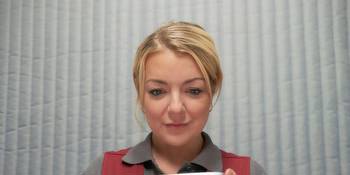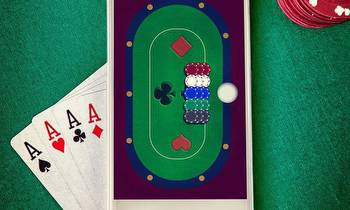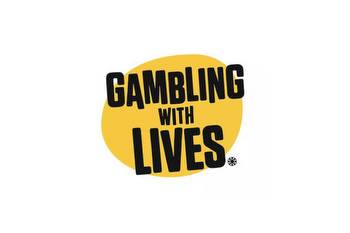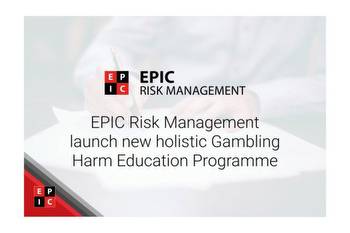Qatar World Cup: Experts share how to spot the warning signs of gambling addiction

With the Qatar World Cup taking place during the cost of living crisis, experts share the early signs that someone may be struggling with their gambling
So, we’re all aware that this World Cup feels a little… different. Amid a string of controversies, an unusual wintery chill and a cost of living crisis, for many it feels more “I’m going home” than “it’s coming home”.
Unfortunately, this only contributes to a worsening storm that’s already sent over a million people in the UK into the throes of gambling addiction. Experts are warning this could be the most dangerous World Cup on record for people with a gambling addiction as fans are exposed to greater levels of advertising and temptation.
So, following the transition to online, at-home gambling that can see fans privately slipping into addiction, it’s never been more important to spot the signs. We spoke to gambling-harm charities BeGambleAware and Gambling with Lives to learn more.
Your support changes lives. Find out how you can help us help more people by signing up for a subscription
What gambling addicts are up against
Online gambling has been steadily on the rise since the popularisation of smartphones, and online gambling firms have seen an explosion in revenue since the 2020 Covid lockdown. The Gambling Commission reported a massive £6.85billion gross gambling yield (GBY) between April 2020 and March 2021 – a £1.06bn increase from the year before.
“Gambling harms refer to the ways in which an individual can become negatively impacted by their gambling. While many of those who choose to gamble will be absolutely fine, for some, gambling can become harmful and negatively impact them in different ways – from challenges with mental health to finances,” said BeGambleAware.
Liz Ritchie, co-chair of gambling bereavement charity Gambling with Lives, added: “This World Cup is likely to be the deadliest in history, not only due to the highlighted human rights abuses in Qatar. There will be countless gambling-related suicides this year, caused by the toxic, addictive products and predatory marketing practices of the gambling industry.”
Gambling advertising continues to be a pervasive threat to addicts, bombarding them with constant reminders and temptations in the form of sponsorships and flashy adverts. Gambling with Lives reported that during its 2018 World Cup coverage, ITV broadcast more than 90 minutes of gambling adverts – more than fast food and alcohol combined.
Some top former players have received criticism for their role as brand ambassadors for top betting companies – stars like Peter Crouch and Harry Redknapp have appeared in adverts promoting brands such as PaddyPower and BetVictor. GambleAware found that, despite the ban on gambling in Qatar, six out of 10 footballers believed there were too many betting adverts shown during tournaments.
Sports betting is considered a gateway into more addictive, high-risk forms of bingo or casino gambling as the products are often cross-sold to betters. Casino and slot-based forms of gambling are considered to have an addiction risk rate of around 45 per cent – higher than heroin.
Is there a link between poverty and gambling addiction?
There is a well-recorded link between poverty and gambling addiction. A 2021 study by the University of Liverpool and the National Centre for Social Research found gamblers from deprived areas were more likely to lose money in casinos, notably engaging in more high-intensity play. It was also found gambling firms knowingly make up to 70 per cent of their profit from 5 per cent of their customers, with that portion rising to 86 per cent in sports betting.
A recent survey from BeGambleAware showed three in 10 people who bet on football say financial pressures have driven them to gamble more money than they intended. And one in five say they are more likely to gamble in the future due to the cost of living.
“For gambling operators, the World Cup is just another opportunity to exploit people with no regard for the lives they destroy,” said Will Prochaska, the strategy director at Gambling with Lives. “Despite the heightened risk of harm, most safety campaigns in the UK suggest individual responsibility, encouraging gamblers to ‘gamble responsibly’. The underlying message of this is that those who develop problems are the ones at fault, not the industry that has mis-sold addictive products as safe.”
We contacted Fifa for more information on the work they’re doing to support gambling addiction during the World Cup but didn’t receive a response.
“With the sheer volume of football and the amount of betting ads expected, it can be easy to get carried away and gambling harms can affect anyone. That is why it’s so important to check in with your loved ones, as it might not appear that they’re struggling,” said BeGambleAware. “One conversation can break the stigma around gambling, can provide reassurance that you are not alone and show that help is always at hand.”
Spotting an addiction before it gets out of hand
“Gambling harms can be very difficult to spot as they don’t often take on a physical manifestation and can easily be concealed and hidden by the individual experiencing them,” said BeGambleAware. “There are a lot of misconceptions and stereotypes concerning gambling harms, but the key thing to highlight is that they can affect absolutely anyone.
“It is, therefore, so important to be aware of the early warning signs that can show someone you love may be struggling.”
There are three key warning signs to look out for in someone who may be starting to experience harms from gambling:
- Losing track of time – if you notice a loved one is often distracted or engrossed in their phone for hours on end without realising that time is passing, this can be one of the first signs that they are experiencing harms from their gambling.
- Spending more than they can afford – if you notice that a loved one is spending more money than they can afford, and often leading them to feel stress and anxiety around money, this can be another sign that their gambling escalating into something harmful.
- Hiding their gambling or keeping it a secret – this is, naturally, one of the harder warning signs to spot. But, if you notice a loved one becoming more reticent than normal or seeming like they are keeping something from you, it may be worth opening up a conversation around gambling.
Unfortunately, the addictive psychology around gambling can prevent someone from admitting they have a problem until it becomes out of control. Often, gambling winnings can justify a preoccupation, and lend someone to continued high-risk bets.
BeGambleAware also lists the following signs of a potential gambling addiction on their ‘Understanding Someone Who Gambles’ guide:
- They’re making bigger wagers and sums than they can afford
- They find it hard to manage or stop their gambling
- They’ve lost interest in usual activities or hobbies, or they can’t enjoy a match without betting on it
- Increased money borrowing, possession selling or bill-dodging
- The scale of bets gradually increases over time , suggesting a problem with diminishing returns
- They often seem anxious, depressed or irritable without wanting to share why
If you find yourself spending too much time, money, or that you’re starting to hide your gambling from others. Speak to a loved one, or contact the national gambling helpline or search BeGambleAware for free, anonymous advice and support.
If you’re worried for a loved one, the best thing you can do is communicate your concerns in a non-accusatory way. Someone in the throes of a gambling addiction is already vulnerable and sending them into defence mode will only serve to isolate them – it’s imperative to let them know you‘re only intervening because you care.
Support us
Take a print or digital subscription to The Big Issue and provide a critical lifeline to our work.
What to do if you think you or someone you love has a gambling addiction
“Any rise in gambling activity will be accompanied by a rise in gambling harm,” says Gambling with Lives. “Research finds that one in four gamblers are of a ‘substantially higher risk’ of suffering harm, and people with a gambling disorder are 15 times more likely to take their lives.”
If you do choose to gamble, there are some simple measures you can take to help stick to your limits and avoid ‘Bet Regret’, says BeGambleAware, such as setting time limits, blocking notifications, limiting online adverts or leaving your bank card at home.
Additionally, if you’re worried about someone you share finances with and want to protect yourself as well as your loved one, there are preventative steps you can take. As well as gambling blocking tools like Gamblock and Betfilter that can block gambling domains and cut off the temptation entirely, you can let your bank know in advance as there may be ways they can help you manage temptation or debt.
To find out more about gambling harms and the ways you can protect yourself ahead of this World Cup, you can visit BeGambleAware.org for free, confidential advice and support.
The National Gambling Helpline is also available, if you are concerned about your gambling or that of a loved one, on 0808 8020 133 and operates 24 hours a day, seven days a week.











